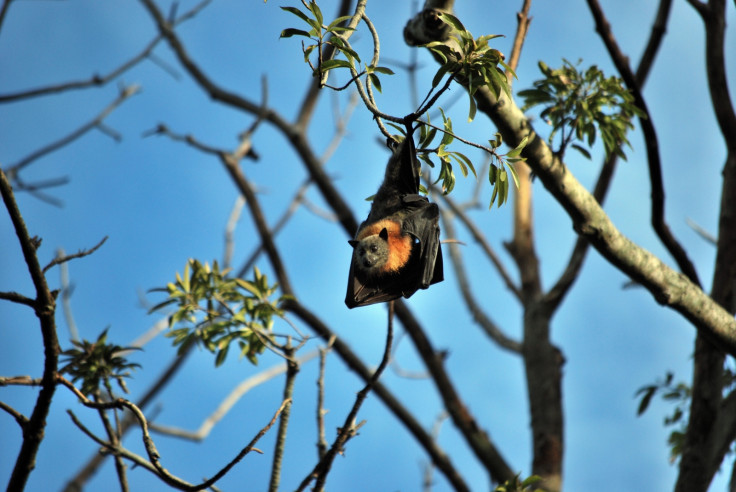Ebola Outbreak: Bats Blamed for Outbreak but Could Hold Key to Cure

Studying bats' immune systems can help fight the current Ebola outbreak, scientists have said.
The deadly virus, which has killed more than 5,000 people in West Africa since last January, can be easily spread to humans via infected bats, which are thought to be the natural Ebola hosts.
Fruit infected by bats carrying Ebola are picked up by other animals, such as monkies and antelopes, which are often eaten by humans in West Africa.
The contact with animals' infected fluids and blood causes the spread of the virus from animals to humans.
As bats can carry more than 100 infectious diseases, including rabies and sever acute respiratory syndrome (SARS), without becoming sick themselves; as such, scientists believe that the mammals could shed valuable light on fighting the current Ebola outbreak.
"If we can understand how they do it then that could lead to better ways to treat infections that are highly lethal in people and other mammals," Olivier Restif, a researcher at the University of Cambridge in Britain, told Reuters.
Scientists believe that bats' capacity to evade Ebola could be linked with their ability to fly.
A 2013 report by Michelle Baker of Australia's Commonwealth Scientific and Industrial Research Organisation, published in the journal Nature, found that bats have an "unexpected concentration of genes" for repairing DNA damage, hinting at a link between flying and immunity.
In fact, flying requires the bat metabolism to run at a very high rate, causing stress and potential cell damage, and experts think the mammals may have developed a mechanism to limit this damage by having parts of their immune system permanently switched on.
One reason why Ebola is so deadly to people is that the virus attacks the immune system, blocking interferon, an anti-virus molecule found present in higher levels in bats.
"If we can redirect the immune system of other species to react in the same way, then that could be a potential therapeutic approach," Baker said.
© Copyright IBTimes 2025. All rights reserved.






















